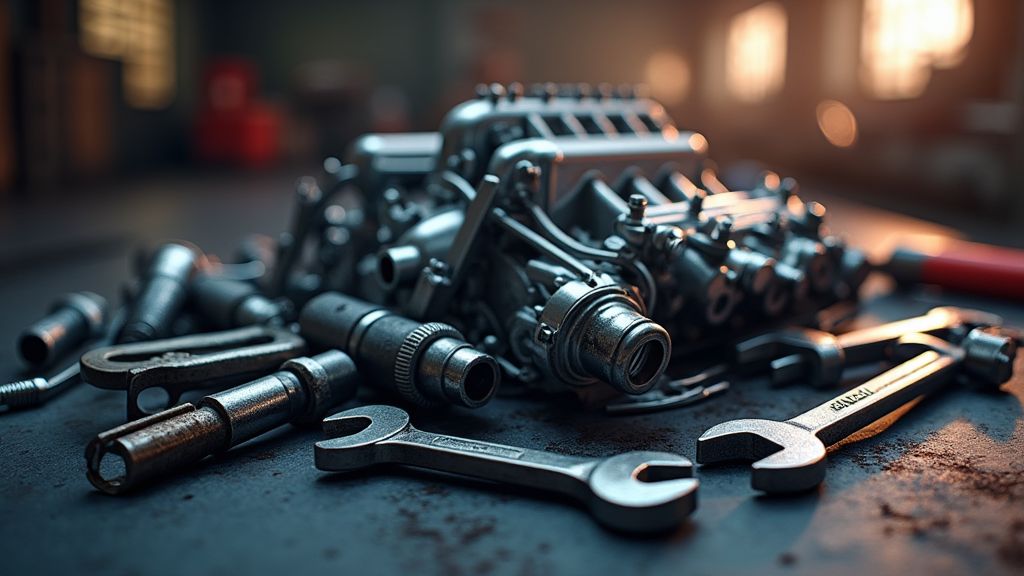Essential Maintenance Tasks for Every Vehicle Owner
As a vehicle owner, you have the responsibility to ensure that your car remains in top condition for the safety of yourself and others on the road. Performing regular maintenance tasks can not only extend the lifespan of your vehicle but also help prevent costly repairs down the line. In this article, we will discuss some essential maintenance tasks that every vehicle owner should prioritize to keep their car running smoothly and efficiently.
1. Regular Oil Changes
One of the most critical maintenance tasks for any vehicle is changing the oil regularly. Oil lubricates the engine, reducing friction and heat buildup. Over time, oil breaks down and becomes contaminated with dirt and debris, which can cause serious damage to the engine if not replaced. It is recommended to change the oil every 5,000 to 7,500 miles, depending on your vehicle’s make and model.
2. Tire Maintenance
Proper tire maintenance is crucial for both safety and fuel efficiency. Check your tire pressure regularly and ensure they are inflated to the manufacturer’s recommended levels. Rotate your tires every 5,000 to 8,000 miles to ensure even wear and prolong their lifespan. Additionally, inspect your tires for any signs of damage or uneven tread wear, as this could indicate alignment issues or other problems.
3. Brake Inspections
Brakes are a vital safety feature of any vehicle, so it is essential to have them inspected regularly. If you notice any unusual noises or vibrations when braking, it may be a sign that your brakes need attention. Have a professional inspect your brakes at least once a year, or more frequently if you do a lot of city driving or towing heavy loads.
4. Fluid Checks
In addition to oil, your vehicle relies on various other fluids to operate smoothly. Check and top up fluids such as coolant, transmission fluid, brake fluid, and power steering fluid regularly. Low fluid levels can cause serious damage to your vehicle’s systems, so it’s crucial to address any leaks or low levels promptly.
5. Battery Maintenance
Keeping your car battery in good condition is essential for reliable performance, especially during extreme temperatures. Inspect your battery terminals for corrosion, which can hinder its ability to charge properly. Clean the terminals if necessary and ensure the battery is securely mounted. Additionally, have your battery tested periodically to avoid unexpected breakdowns, especially if it’s over three years old.
6. Air Filter Replacement
A clean air filter ensures that your engine receives the right mix of air and fuel, which helps maintain performance and fuel efficiency. Over time, the air filter can become clogged with dust and debris, affecting your engine’s power and efficiency. Replacing your air filter every 12,000 to 15,000 miles, or as recommended by your vehicle’s manufacturer, will keep your engine running smoothly.
7. Monitor the Exhaust System
Your exhaust system plays a crucial role in reducing emissions and improving fuel economy. Inspect it periodically for signs of rust, holes, or leaks, especially around the muffler and catalytic converter. A damaged exhaust system can result in decreased fuel efficiency and increased emissions, as well as unpleasant sounds and smells, so addressing any issues early can prevent costly repairs.
8. Keep the Car Clean Inside and Out
Maintaining a clean vehicle isn’t just about aesthetics—it can also help extend the life of your car. Dirt, grime, and salt can cause rust and wear on your car’s body and undercarriage. Regular washing and waxing can protect the paint and prevent corrosion. Similarly, keeping the interior clean by vacuuming, dusting, and using protective mats helps preserve upholstery and makes for a more comfortable driving experience.













